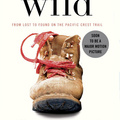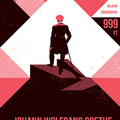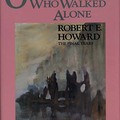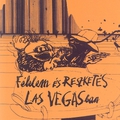Bret Easton Ellis: Less Than Zero
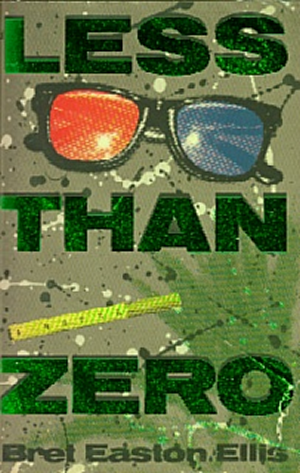
It was some ten years ago, when the movie version of American Psycho was released in Hungary, that I first came across Bret Easton Ellis’s name. I didn’t watch the movie then (and even though ten years passed, I still haven’t seen it yet), but I was intrigued by what I read about it, and I wanted to know what that infamous novel on which the movie was based could be about. As it happened, I was unable to obtain a copy of the novel at that time. Either my local library didn’t carry a copy of American Psycho, or they banished it to some damp storeroom in the cellar in an attempt to save their readers from such a reading experience. Anyway, I was forced to be content with what I could get, so Less Than Zero became the first novel I read by Ellis, and actually it didn’t make an indelible impression on my young mind. I didn’t like Ellis’s style, and all I could grasp in the novel was that it was about a bunch of stupid little rich kids who spend their days doing drugs and whining away for a reason completely unfathomable for me.
But I grew older, gradually worked myself through all of Ellis’s books, and then even started to reread his novels. It was during my second reading of Less Than Zero that I realized that it is in fact a very good novel. And now I reread the novel for the third time and again, I came to the conclusion that it is indeed a good book, and what is more, it raises some highly interesting questions. Of these in a minute.
But before that, let me say a couple of words about the story. It won’t take long: the novel doesn’t have a story as such. Less Than Zero deals with young Clay, a rich and bored university student and his companions. At the beginning of the novel Clay arrives home from a New Hampshire elite university to spend the Christmas holiday in Los Angeles. His four weeks at home are spent with uninterrupted partying, drug-taking and sex with various girls. While engaged in these activities, Clay sometimes experiences waves of nostalgia and starts pondering about the past – which was no more meaningful than the present, but still, looking back now, he feels that the summers he used to spend with his family in the desert were indeed good times.
It’s rather difficult to say anything about Ellis that hadn’t been said before. Many have praised his unique, minimalist style and the way he depicted the emptiness and meaninglessness that characterized the America of the 1980s and 1990s. And I agree with those who praise him: I also believe that he achieves all this in a clever and appalling way, and in the past couple of years I’ve learned to appreciate his style which I found boring ten years ago. But I don’t go any further into this topic, as I want to write about the violence of Ellis’s fictional world and the ways in which his characters struggle to find their way out from the hell they live in.
First of all, I was surprised to find how exceedingly violent Less Than Zero is, because I simply didn’t remember that this novel features so many brutal, shocking and inhumanly cruel scenes: we read about murders, about rapes, and about people forced into prostitution, and somehow I associated such things with Ellis’s later novels. Well, I was wrong, but this mistake made me think about the relations among Ellis’s first three novels (Less Than Zero, The Rules of Attraction and American Psycho). For me, American Psycho is the novel of absolute hopelessness, whereas in the other two novels I feel that there is still a slight chance of living a life which doesn’t so closely resemble hell. For instance, it’s worth noting in Less Than Zero that Clay attempts to keep out the violence from his life: he doesn’t participate in the violent acts of his buddies, or simply leaves the room when his companions start to watch a snuff porn movie. Of course all these actions speak of passivity, and Clay doesn’t actually do anything to prevent the others from engaging in these kinds of activities, but still, in the fictional world of the novel, it seems an almost revolutionary act and the proof of his free will that Clay sometimes ventures as far as to think and occasionally even refuses to do what everyone else does.
Naturally, I don’t want to praise Clay too highly, as he lives the same empty, aimless, meaningless life as his companions (I wouldn’t go as far as to call them ’friends’) who like to entertain themselves with violence. But I find it interesting that Ellis makes him, the least agressive character the protagonist of Less Than Zero, because even though Clay doesn’t have a clue as to how to change his life, at least he doesn’t try to redeem himself by torturing others, and this raises some hopes in me.
In The Rules of Attraction we can also read about the often less than innocent games of a couple of rich university students. The events in that novel are also totally random, and the characters are just as interchangeable as the characters in Less Than Zero. But neither Less Than Zero, nor The Rules of Attraction can prepare the reader for the insane violence, the emotional desolation and the immeasurably bleak and hopeless world view which appears in American Psycho.
I have no idea when the passive, helpless, aimless, but more or less harmless Clay and his likes gave way to the murderously insane Patrick Bateman in Ellis’s fictional world. And here I don’t want to go into the possible satirical interpretation of American Psycho, and don’t want to deal with the idea that perhaps Pat Bateman only imagined what he did, as this doesn’t alter the fact that there must have been a point where the dark world of the first two novels suddenly turned even darker, and violence took hold over the sanity of the characters. I’d like to pinpoint when this change occurred, but I’m not sure if it’s possible at all.
The novels by Bret Easton Ellis can provoke many different thoughts and emotions. In me, they provoke sadness above everything else. Ellis is not a great moralizer, but I am, so I write down shamelessly that my heart breaks everytime I read about his inhuman, emotionless, unhappy characters who despite all their culture and money don’t know how to make their hellish lives better – the hellish lives, let me add, which they created for themselves.
(And I keep rereading his novels, despite all this.)

